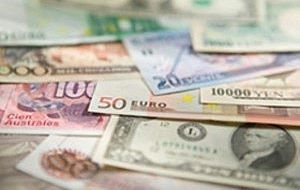MercoPress. South Atlantic News Agency
Emerging economies ready to counter the Federal Reserve latest liquidity injection
 The ‘currencies war’ anticipates serious confrontations in the G20 summit
The ‘currencies war’ anticipates serious confrontations in the G20 summit Asia and Latinamerica emerging economies anticipated that they would be implementing new measures to limit the inflow of capitals following on the United States Federal Reserve announcement that it would pump more liquidity into the faltering US economy.
Emerging economies expressed their disappointment with the Fed which makes even more difficult a significant agreement on global misbalances and exchange rates in the coming G-20 summit next week in Seoul, Korea.
“As long as the world does not implement restrictions on the issuing of global currencies such as the US dollar, and this is not easy, then the occurrence of another crisis is inevitable” said Xia Bin, China’s Central Bank advisor.
Korea’s Ministry of Finance and Strategy said it had sent a message to markets on Thursday and will consider “aggressively” controls over the inflow of capitals while Brazil’s Foreign Trade Secretary anticipated that the Fed’s latest decision could trigger “reprisals and counter measures”.
Thailand also considered the possibility of a concerted action to stop the avalanche of US dollars that are expected to “flood” emerging markets,
“The governor of the Central Bank has confirmed discussions with other central banks that are ready to impose joint measures if necessary to stop the possible influx of speculative money into the region”, said Thai’s Finance minister Korn Chatifkavanij.
From India Central bank officials said that while the US has the right to stimulate its economy, others too have the right to defend their interests and any currencies’ agreement in Seoul had to be “a victory for both sides”, and this means “a political solution, so that is why we are all looking to Seoul”.
Last month, G-20 Finance ministers discussed an agreement which would hopefully ink totally radical visions from the leading “contenders” Untied States and China. The final communiqué called on both sides to avoid competitive foreign exchange devaluations and for governments to work on policies that reduce misbalances in countries’ current accounts.
Xia Bin writing in Beijing’s Financial News said China would defend its own interests: “we must think in what is good for us”.
Following the Fed’s announcement that it is prepared to invest up to 900 billion USD in purchasing US bonds, the Korean central bank rushed to intervene in the foreign exchange market, after the Won reached its highest in six months. Other currencies also appreciated among them the Australian dollar reaching a 1982 record while Japan said it was ready to impede the Yen from ballooning and harming exports’ competitiveness.
Publicly Korean officials say they are optimistic about reaching an agreement at the coming G-20, but privately they are not so enthusiastic given the strong opposition from Germany and China.
Capital inflows to emerging economies have been massive, having reached 46.4 billion US dollars in the ten months of this year, compared to 9.4 billion for the whole of 2009, according to financial analysts.




Top Comments
Disclaimer & comment rulesCommenting for this story is now closed.
If you have a Facebook account, become a fan and comment on our Facebook Page!